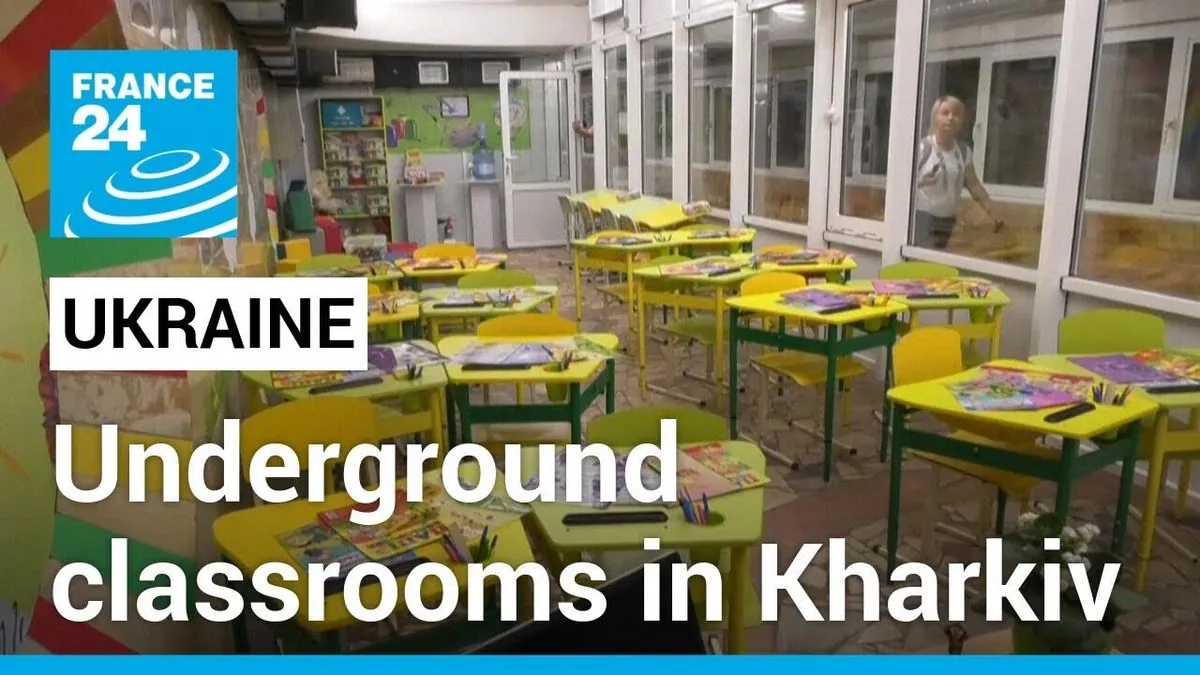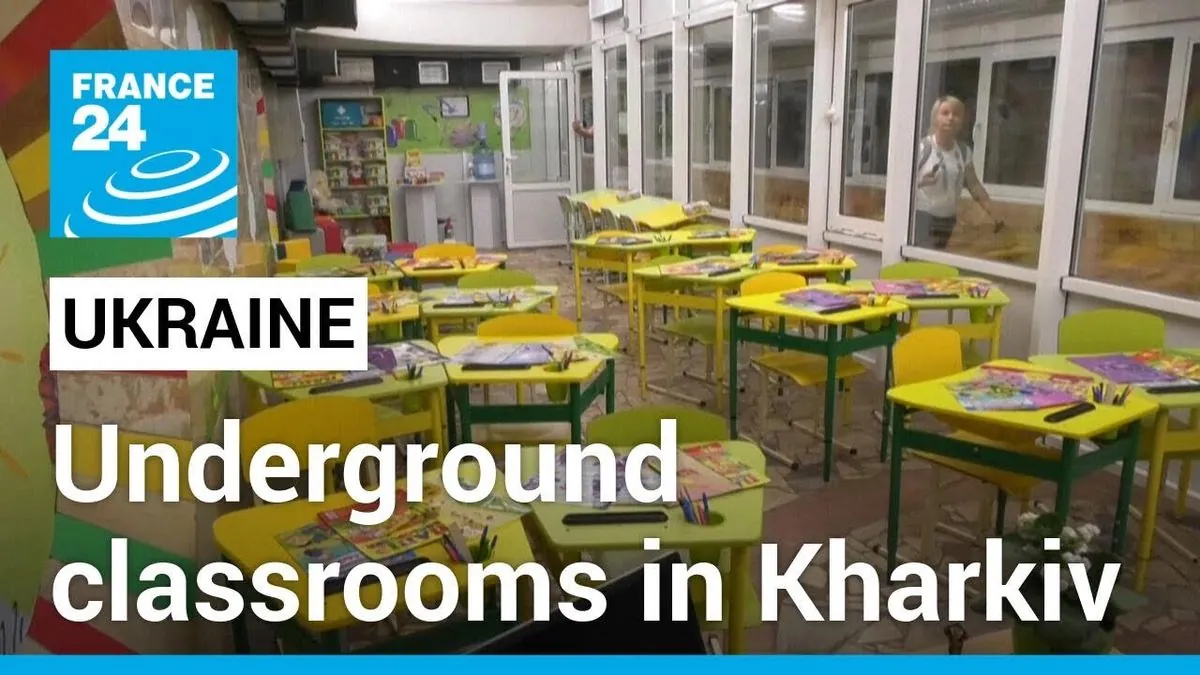Ukraine's Underground Schools: Adapting Education Amidst Conflict
Ukraine is constructing underground schools to ensure safe in-person education during the ongoing war. This initiative aims to address falling attainment levels and support children's development in conflict-affected regions.

In response to the ongoing conflict, Ukraine is taking unprecedented steps to ensure the continuity of education by constructing underground schools. This innovative approach aims to provide safe, in-person learning environments for students who have been forced into remote education due to the war.
In Zaporizhzhia, a city near the frontline, construction is underway for a subterranean school facility designed to accommodate 460 students and 40 staff. Nataliia Gutaruk, a secondary school teacher, expresses mixed feelings about the project. While she has concerns about the lack of natural light, she acknowledges the importance of face-to-face interaction for students' social development.

The Ministry of Education and Science (MoES) is spearheading this nationwide initiative. Kudriavets Yevhen, deputy first minister, explains, "Remote education and constant stress because of the war has not only impacted the psychosocial state of our students, but also their level of knowledge." The ministry aims to return 300,000 students to in-person learning by the end of 2024 as part of its 'School Offline' policy.
This push for underground education comes in response to alarming trends in student performance. The 2023 Programme for International Student Assessment (PISA) revealed significant learning gaps among 15-year-olds, equivalent to two years of loss in reading and one year in mathematics.
The success of metro schools in Kharkiv, Ukraine's second-largest city, has bolstered confidence in the underground schooling concept. More than 2,200 pupils now attend classes in makeshift classrooms within six underground train stations. Svitlana Babenko, a math teacher at Lyceum 46, believes this approach is beneficial despite the challenges of background noise and unusual surroundings.
Even in western regions like Lviv, where Russian attacks are less frequent, education is moving underground. Solomiya Boykovych, who runs four private preschools, is constructing a purpose-built early education center with a large underground shelter. She emphasizes the importance of such facilities, stating, "Even when the war stops, it will always be unsafe because of Russia. There will always be sirens and missiles launching – this is our new reality."
Ukraine's education system, known for its high literacy rate and strong emphasis on STEM subjects, is adapting to these challenging circumstances. The country's tradition of specialized schools and competitive university entrance exams has fostered a culture of academic excellence. Now, educators are working to maintain these standards while prioritizing student safety.
As Ukraine continues to align its education system with European standards and promote inclusive learning, the underground schools represent a unique solution to the current crisis. These facilities not only provide a safe learning environment but also support the country's efforts to digitalize education and improve distance learning capabilities.
While the underground schools are a response to immediate security concerns, they also reflect Ukraine's resilience and commitment to education. As the country navigates this difficult period, these innovative learning spaces may become a symbol of Ukraine's determination to invest in its future, even in the face of adversity.


































